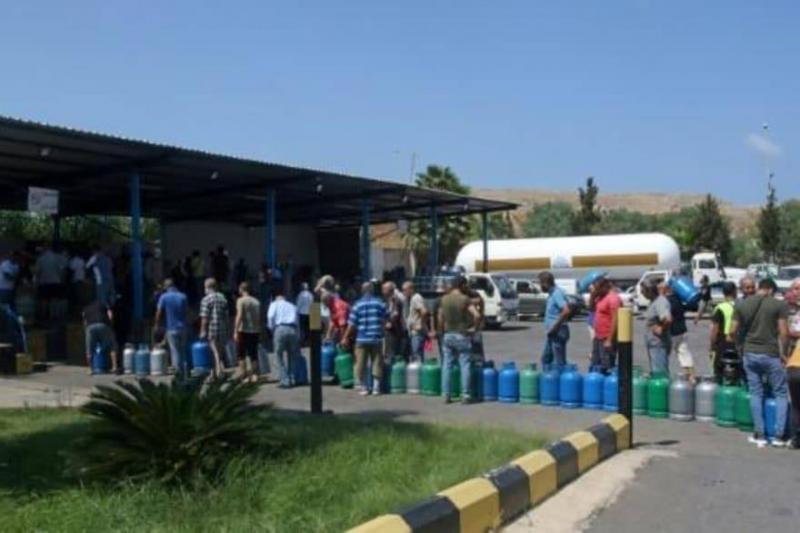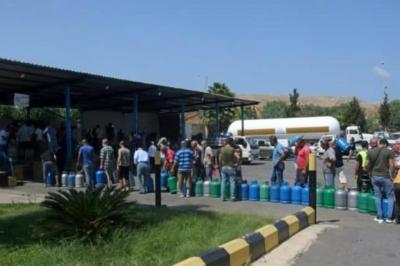Dozens of Lebanese have been waiting in long queues since Tuesday morning to fill up their gas cylinders amid warnings from distributors about a potential shortage of gas and other basic commodities in a country experiencing a rapid economic collapse for the past two years. Fred Zaynoun, head of the Gas Workers and Distributors Syndicate, warned on Tuesday that domestic gas cylinders could run out within a week if the Central Bank of Lebanon does not approve the necessary credits for importers. Zaynoun told AFP, "The current stock lasts for a week, and if the problem is not resolved, gas cylinders will be sold in the black market."
The price of a domestic gas cylinder is currently around 60,000 Lebanese pounds (approximately $40 at the official rate and three dollars on the black market), and it is likely to exceed 100,000 pounds in the black market. The minimum wage equals 675,000 pounds, which was equivalent to $450 before the crisis and is now about $30 according to the black market exchange rate. Most Lebanese receive their wages in local currency.
Due to the economic collapse, classified by the World Bank as one of the worst in the world since the mid-20th century, the UN Office for the Coordination of Humanitarian Affairs recently estimated that 78% of the population now lives in poverty, with 36% living in extreme poverty. With the depletion of dollar reserves at the Central Bank of Lebanon and its delay in opening credits for imports, the country has been experiencing shortages of several essential goods, including fuel and medicines for several weeks.
Zaynoun explained that the current shortage of domestic gas is due to the Central Bank not opening credits, noting that a ship loaded with five tons has been waiting in the territorial waters for 17 days without receiving approval thus far. In Sidon (south), dozens waited for several hours outside a domestic gas distribution company to fill their cylinders. Mohammad Ali Hassan told AFP, "Is there any humiliation greater than this? We are waiting for a gas cylinder to feed our children. We fear we'll later be standing in lines to buy water as well." He added, "Damn this ruling authority," which many Lebanese hold responsible for the economic collapse, accusing it of corruption and waste.
In Akkar (north), the National News Agency reported that domestic gas distribution companies are experiencing "unprecedented congestion." The agency quoted Walid Al-Haik, the owner of a distribution company in one of the towns, saying, "The importing companies have stopped providing our gas needs," also pointing to the central bank's delay in opening the necessary credits.
In Lebanon, almost every day sees warnings from various sectors: hospitals warn of running out of fuel necessary for operating generators amid power outages and the risks to patients' lives; pharmacies go on strike due to the lack of medicines; and stores may have to empty their refrigerated goods due to lack of electricity and fuel.
Lebanese people have become accustomed to the sight of long queues as they wait for hours outside gas stations that have implemented severe rationing policies for distributing gasoline and diesel. The congestion in several areas has escalated to conflicts and even gunfire. Three people were killed on Monday in two separate incidents over disputes regarding fuel purchases at the stations.




